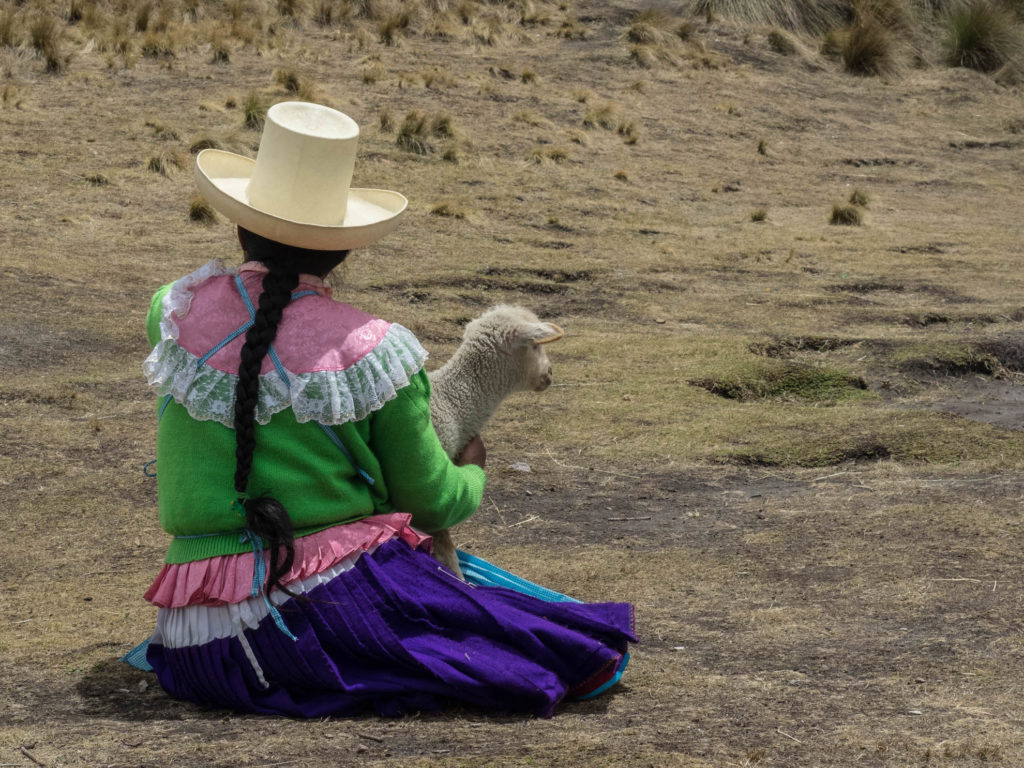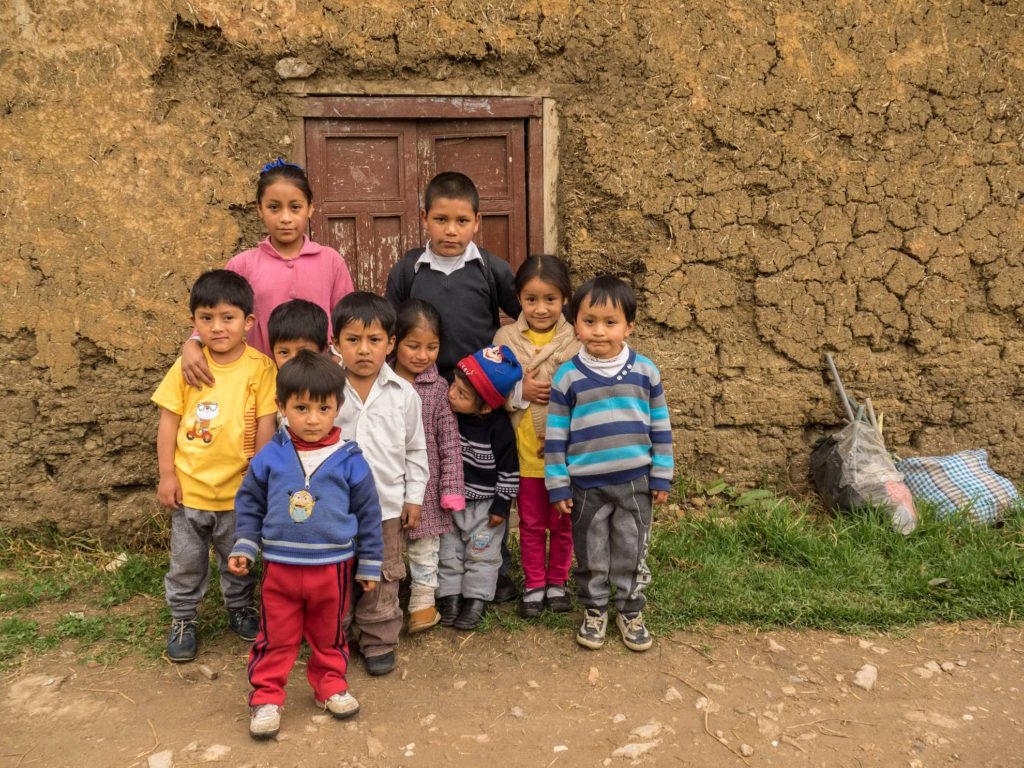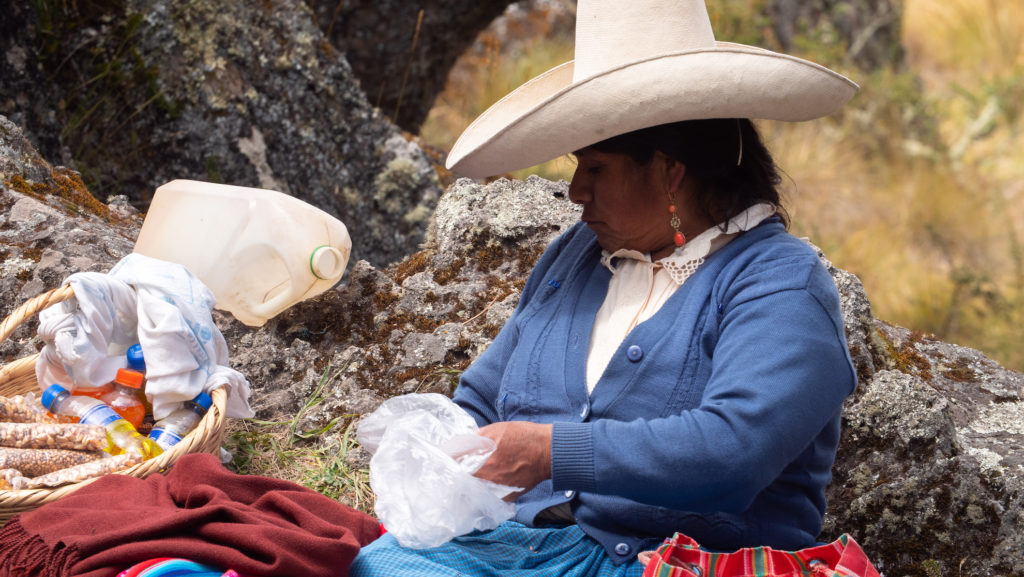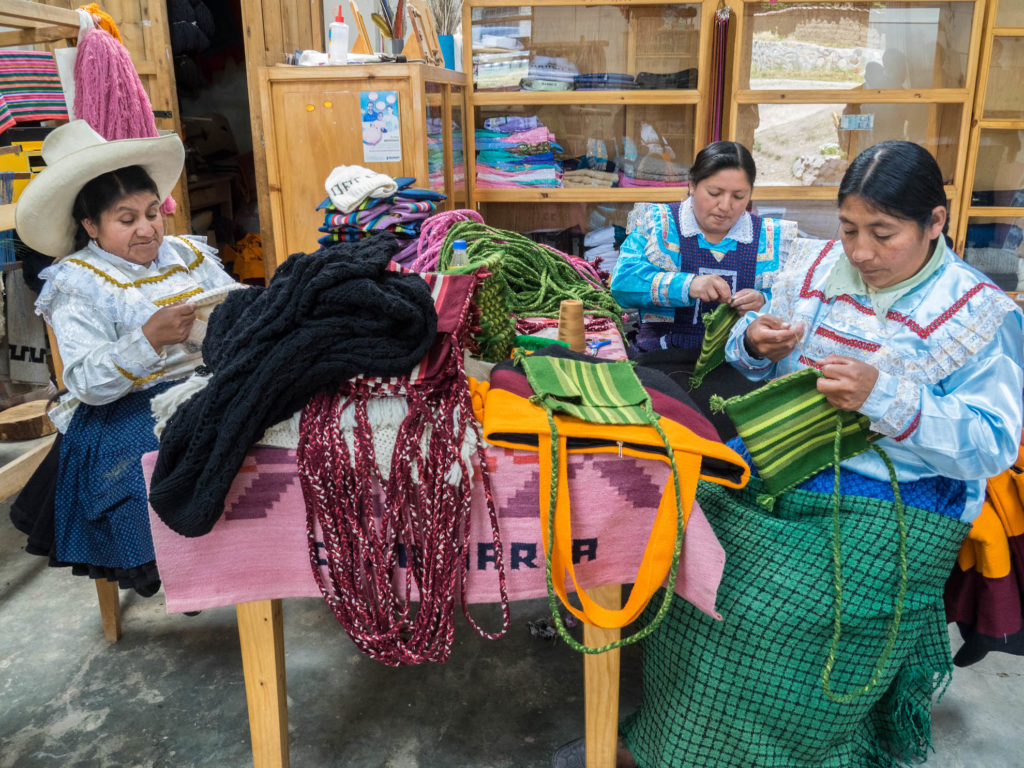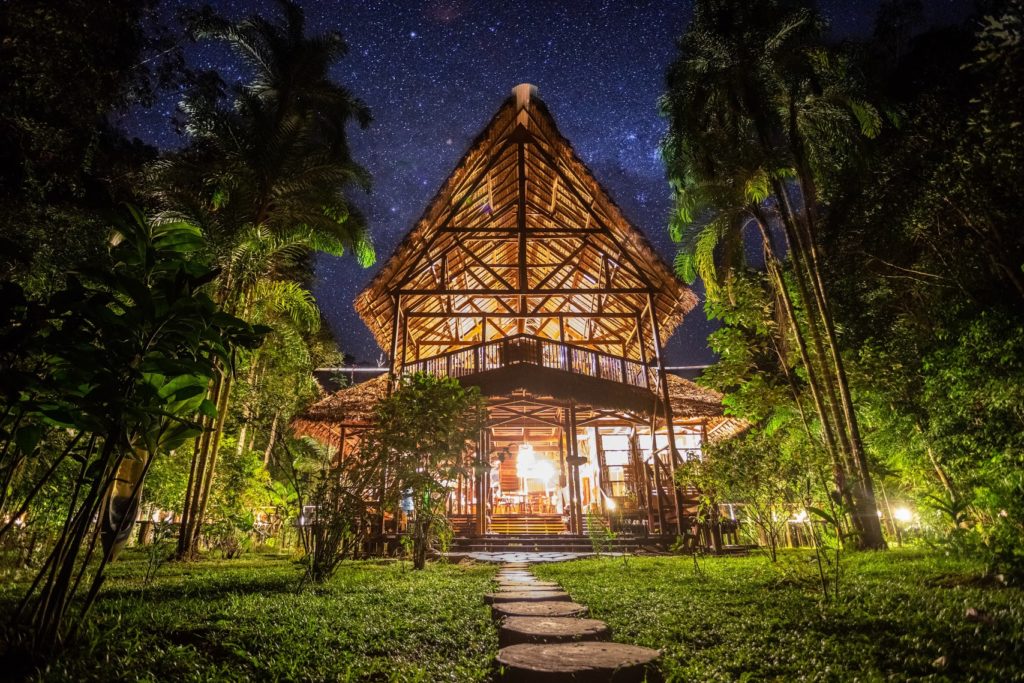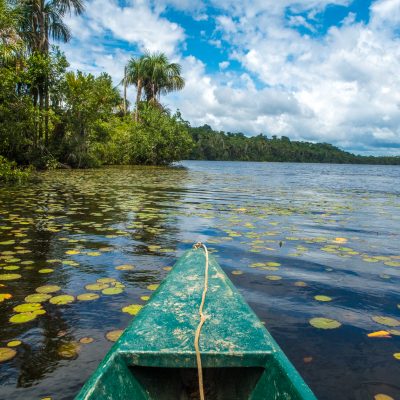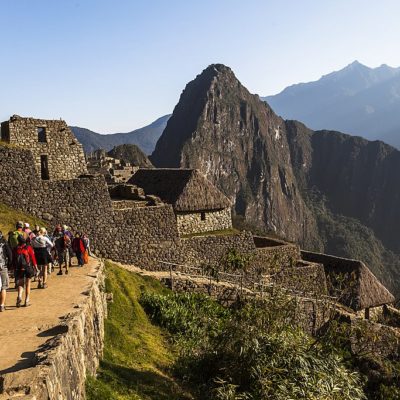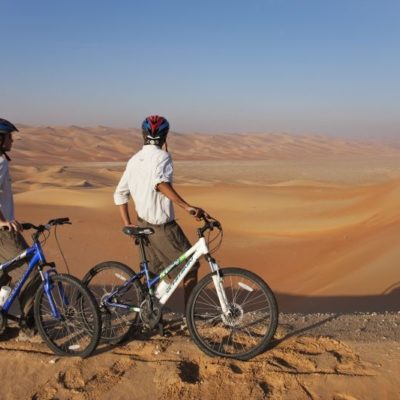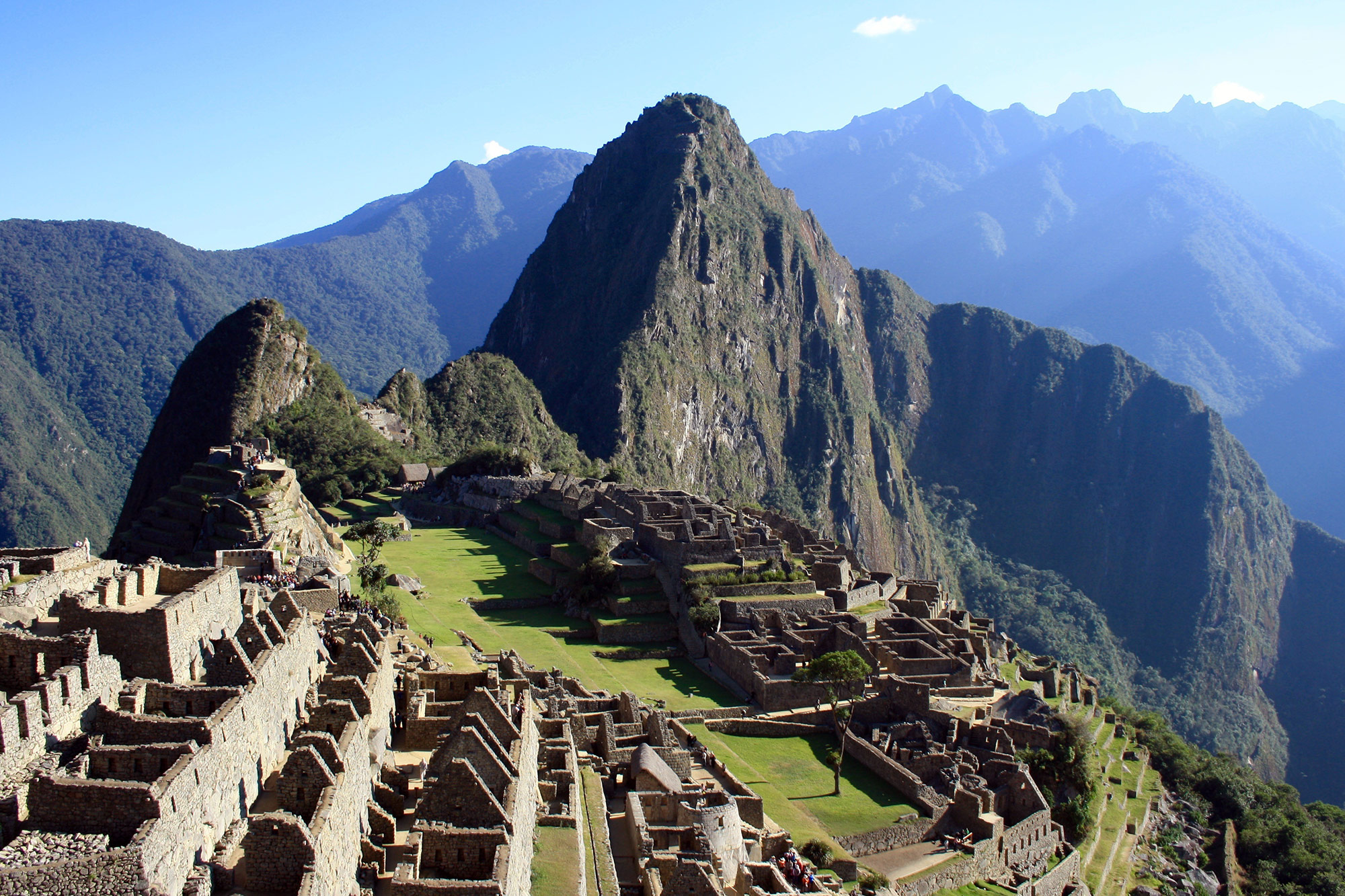
The Beating Heart of the Lares Valley – Peru
Among several major trails that run through the Peruvian Andes, the Lares Trek stands out from the rest as a deep cultural current that runs through the trek, as walkers progress along the 36-kilometre route. Along the theme of “A Peopled Planet”, a journey along the Lares Valley rivals other Andean trails such as the Inca Trail, offering enriching cultural experiences, and following a more holistic model of travelling.
The soaring popularity of the Inca Trail brings up concerns of overcrowding for both individuals seeking an enthralling hiking experience, and the Peruvian government trying to maintain the path. Rather than making your way on a crowded trail, the Lares Trek rises to the occasion as an excellent trail with a lower footfall, where fewer hikers compete for ground, in a landscape rich with authentic Andean cultures.
“As the climate crisis rages on, the onus to protect the planet’s ecosystems falls on us to do our part. Tourism no longer exists in a vacuum, and many of the established tourism models have come under intense scrutiny for their environmental impact, and for divesting capital from the local economies it has settled in.”
Communities In Lares Valley
The Lares Trek is unduly regarded by some as something of a runner up compared to the Inca Trail. But I would make the case that the Lares Trek, also referred to as “The Weaver’s Trail”, creates a better space than any in Peru for engagement with the local communities of Peru. The Lares Trek is a trek of people, culture, and community. Whereas other trails emphasise seclusion and an escape from the peopled world, the Lares brings a rich culture to discerning travellers.
It is important that, in engaging in tourism outside of a chain resort vacuum, we recognise our interconnectedness. Community engagement is a driving force in emerging models of sustainable tourism, shown to be beneficial for the local people. As a shared awareness grows between tourists and local communities, progress and development follow in its wake.
In recognising how community engagement can inform us about our responsibility to be a force for good, the Lares Trek will introduce you to vibrant villages of Peruvians throughout the valley who continue centuries-old practices to create renowned textiles. From the collection of wool from local alpacas to the dying and weaving, this small, sustainable industry marches on in the Lares Valley.
As the climate crisis rages on, the onus to protect the planet’s ecosystems falls on us. Tourism no longer exists in a vacuum, and many of the established tourism models have come under intense scrutiny for their environmental impact, and for divesting capital from the local economies it has settled in. As tourists, it is important that we are investing in our futures, and promoting models of tourism which tangibly benefit the destinations we travel to.
In striving to embody an ethical form of travel, the question of accommodation is key. Peru has a burgeoning culture of ecotourism resorts rising to meet the increasing demand for sustainable travel options. The Rainforest Expeditions Lodges offer naturalistic villas set in the rainforests of the Madre De Dios region of Peru. These lodges excel in their ethical approach to tourism, becoming the first 100% carbon neutral lodges in the region.
It is common for trekkers to visit the world-famous Machu Picchu after finishing the 36-kilometre trail. Following the scenic train route from Ollayntambo to Aguas Calientes, the chance to see the Inca citadel makes for an excellent end to your stay in Peru. The journey towards the towering heights of Machu Picchu gives an insight into the cultural richness of Peru, and culminates in the splendour of the Inca civilisation.
But as visitors gaze upon the green terraces of the mountainside, there should be cause to reflect on a fallen empire. The ruins of Machu Picchu give an insight into the civilisation’s sophisticated engineering; that the citadel was able to support both an urban and an agricultural environment in such a limited space shows a level of city planning that we as a society should aspire to. The low-density housing of the urban sprawl is a woefully unsustainable practice, ecologically and economically, which finds itself subsidised by the high-density living spaces of cities. Therefore visitors to Machu Picchu should visit with a notepad and pen – and a burning question: one of ethics; one of sustainability.
“There is in my mind no better means by which we can create lasting connections across the planet than intercultural exchange, and so to move away from an isolationist mindset in our tourism, we must be willing to engage with people wherever we travel. The Lares Trek affords travellers an intimate and enriching cultural experience which promotes the holistic values of this brand of cultural tourism, which I feel is necessary to begin our healing as a planet. ”

